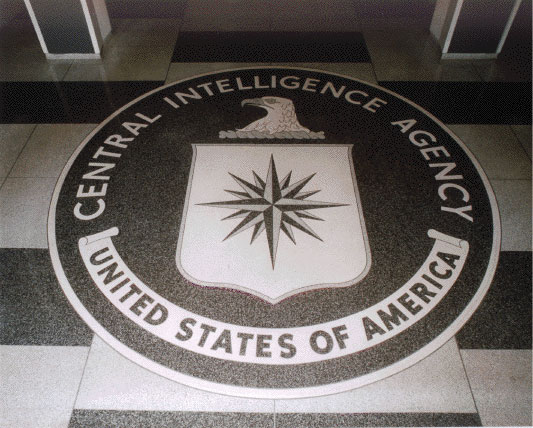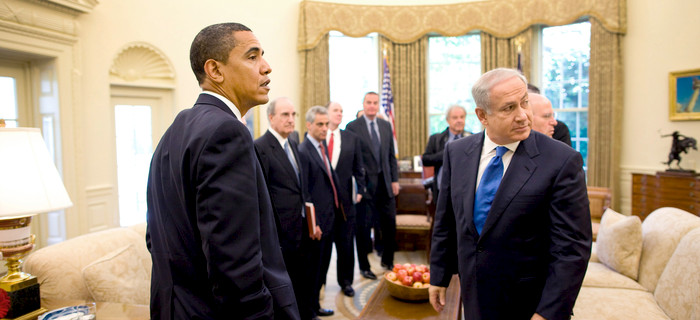
According to an exclusive report from Daniel Klaidman at The Daily Beast, President Obama “is poised to sign off on a plan to shift the CIA’s lethal targeting program to the Defense Department.”
Officials anticipate a phased-in transition in which the CIA’s drone operations would be gradually shifted over to the military, a process that could take as little as a year. Others say it might take longer but would occur during President Obama’s second term. “You can’t just flip a switch, but it’s on a reasonably fast track,” says one U.S. official. During that time, CIA and DOD operators would begin to work more closely together to ensure a smooth hand-off. The CIA would remain involved in lethal targeting, at least on the intelligence side, but would not actually control the unmanned aerial vehicles.
One critical element of the drone war that made it so egregious was that it was a covert program run by a hyper-militarized CIA instead of the Defense Department, despite the fact that these are clearly military actions. Typically, when states shift the use of force into the realm of the secret services, it’s because the law doesn’t permit those actions (even in a legal system that grants special powers to states that would never be afforded to individuals). With the drone war run by the CIA, as Klaidman writes, “it is not only highly classified, it’s deniable under the law. That means the CIA, in theory, can lie about the existence of the program or about particular operations.”
Importantly, a federal appeals court ruled last week that the CIA cannot continue to “neither confirm nor deny” the existence of the drone war, in a court case prompted by a Freedom of Information Act request by the American Civil Liberties Union. For years, the modus operandi has been for the drone war to be the world’s worst kept secret. That way the Obama administration gets the credit for being “tough on terror,” while reserving the right to disregard probing questions or inquiries.
In addition, a high level United Nations investigator last week said the drone war in Pakistan technically violates the law because it is conducted without the express consent of Islamabad, therefore a breach of Pakistani sovereignty. The UN envoy, Ben Emmerson, is leading an investigation into the drone war’s compliance with international law and international human rights law.
Add to this Rand Paul’s attention-grabbing anti-drone filibuster earlier this month and the increased public debate about drones and you end up with a significant amount of pressure on the Obama administration compared to the proverbial blank check it has received since 2009. That pressure might explain this leak to The Daily Beast. The administration is performing “damage control,” almost as if to say ‘Yeah, we know this is illegal and inhumane and starting to piss a lot of people off, but we’re working on it.’
That said, this news should be taken with a grain of salt. The Defense Department currently does control and conduct entire portions of the drone war. And shifting its entirety to the DoD doesn’t necessarily translate to greater transparency and accountability the way it does in theory. “The military’s targeted killing program,” as Klaidman puts it “is ‘clandestine’—which means it is secret but not deniable.”
Small potatoes, right? The administration will still have a drone program, it will still maintain ‘kill lists,’ it will continue to define the entire world as the battlefield and to define away any real meaning of imminence and thus any real legal restrictions on its actions. Even Klaidman readily acknowledges:
To be sure, even with these distinctions, it is not clear that the bureaucratic shift will usher in a new era of openness and accountability. For one thing, targeted killing operations will likely be run by the highly secretive Joint Special Operations Command, the umbrella organization for shadow warriors like the Navy SEALs and Delta Force. And while they run clandestine, rather than covert operations, JSOC is not known for its eagerness to advertise its operations with the press or Congress.
In fact, there’s at least a chance that the change could mean less congressional oversight rather than more. There’s nothing in the law that says the military has to brief congressional committees about its lethal activities. The CIA, on the other hand, is compelled under Title 50 to notify Congress of its intelligence activities. Says Jack Goldsmith, a Harvard law professor and former Justice Department official during the Bush administration: “Moving lethal drone operations exclusively to DOD might bring benefits. But DOD’s lethal operations are no less secretive than the CIA’s, and congressional oversight of DOD ops is significantly weaker” compared with congressional oversight of the CIA. (Still, as a matter of policy, the Obama administration has taken it upon itself to “back-brief” Congress after any of its targeted killings away from conventional battlefields.)
At the very least, I think, there is the hope that continued judicial scrutiny brought upon the administration through groups like the ACLU will now be more fruitful given the shift to DoD. But that is a distant hope, for now.






